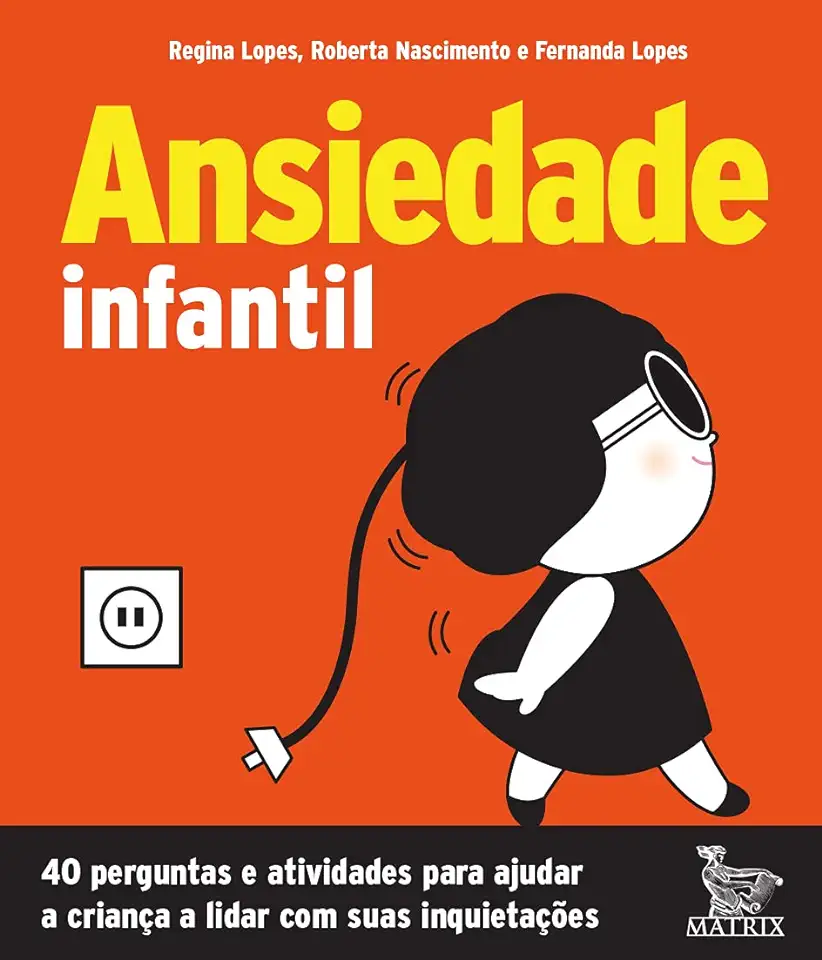
Childhood Anxiety - Lopes; Nascimento; Lopes;
Childhood Anxiety: A Guide for Parents and Professionals
Understanding Childhood Anxiety
Childhood anxiety is a common mental health issue that affects millions of children worldwide. It can manifest in various forms, including separation anxiety, social anxiety, generalized anxiety, and specific phobias. While some anxiety is normal and even helpful in promoting caution and self-protection, excessive or persistent anxiety can significantly impact a child's emotional well-being, social development, and academic performance.
Causes of Childhood Anxiety
The exact causes of childhood anxiety are not fully understood, but several factors are believed to contribute to its development, including:
- Genetics: Anxiety disorders tend to run in families, suggesting a genetic component.
- Temperament: Children with certain personality traits, such as shyness or inhibition, may be more prone to anxiety.
- Environmental factors: Stressful life events, such as parental separation or divorce, bullying, or academic pressure, can trigger anxiety in children.
- Medical conditions: Some medical conditions, such as thyroid problems or sleep disorders, can cause anxiety symptoms.
Symptoms of Childhood Anxiety
Childhood anxiety can manifest in a variety of ways, depending on the individual child and the type of anxiety disorder. Some common symptoms include:
- Excessive worry or fear: Children with anxiety may worry excessively about everyday situations, such as school, social interactions, or their health.
- Physical symptoms: Anxiety can cause physical symptoms, such as headaches, stomachaches, dizziness, or difficulty sleeping.
- Avoidance behaviors: Children with anxiety may avoid situations or activities that trigger their anxiety, such as social events or school.
- Difficulty concentrating: Anxiety can make it difficult for children to concentrate in school or focus on tasks.
- Irritability or anger: Children with anxiety may become irritable or angry when feeling anxious.
Treatment for Childhood Anxiety
There are several effective treatments for childhood anxiety, including:
- Cognitive-behavioral therapy (CBT): CBT helps children learn to identify and challenge negative thoughts and behaviors that contribute to their anxiety.
- Medication: In some cases, medication may be necessary to manage anxiety symptoms.
- Parent training: Parents can play a crucial role in helping their children manage anxiety by learning effective parenting strategies and providing support.
- School-based interventions: Schools can provide support for children with anxiety through counseling services, social skills training, and accommodations in the classroom.
Conclusion
Childhood anxiety is a treatable mental health condition that can significantly impact a child's life. By understanding the causes and symptoms of childhood anxiety and seeking appropriate treatment, parents and professionals can help children overcome their anxiety and lead happy, fulfilling lives.
Why You Should Buy This Book
- Comprehensive and evidence-based: This book provides a comprehensive overview of childhood anxiety, drawing on the latest research and evidence-based practices.
- Written by experts: The authors are leading experts in the field of child psychology and anxiety disorders, with decades of experience in research, clinical practice, and parent education.
- Practical and easy to understand: The book is written in a clear and accessible style, making it easy for parents and professionals to understand and apply the information provided.
- Full of helpful resources: The book includes a wealth of resources, including worksheets, checklists, and tips for parents and professionals, to help them support children with anxiety.
If you are a parent or professional concerned about childhood anxiety, this book is an essential resource. It will provide you with the knowledge and tools you need to help children overcome their anxiety and thrive.